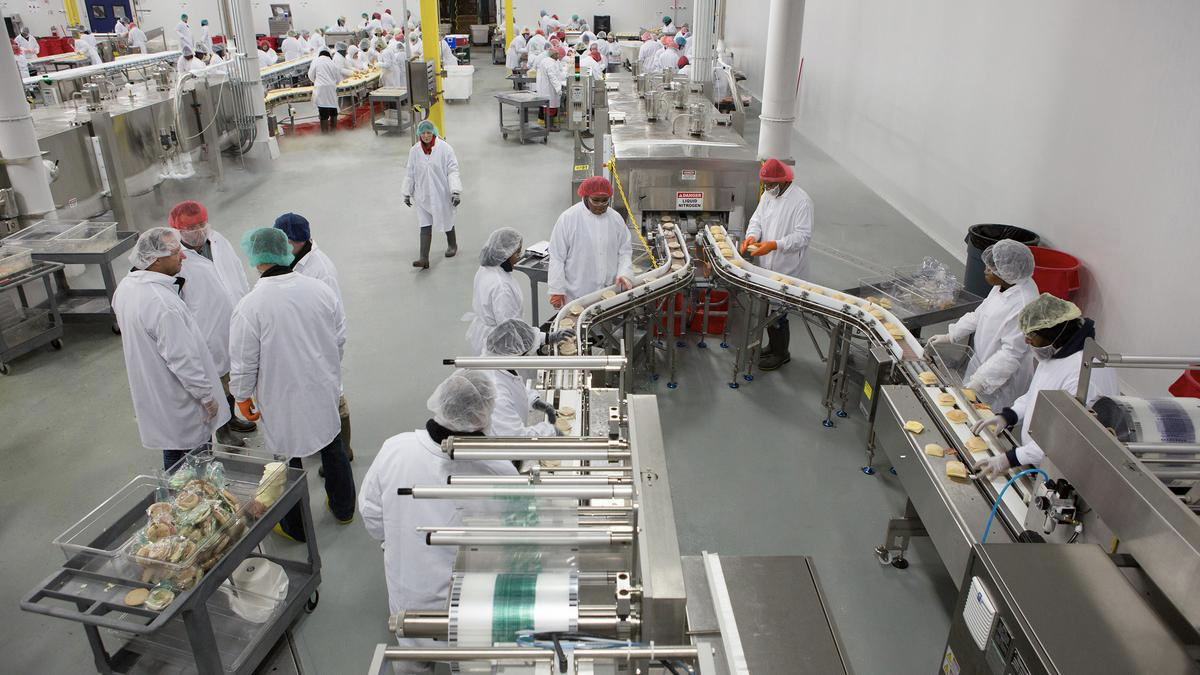It is no surprise that Artificial Intelligence (AI) is the future now. It is slowly taking up the world in a rapid way. The extent to which it is spreading its capabilities in the world in almost every single field is rampant. It is used in many levels of the food industry. It would not be wrong to say that AI and food industry are extremely competent at making projections to manage inventories and pricing.
Artificial intelligence (AI), as it is in many other industries, is having a major impact on the food and beverage industry. Organizations in the sector are increasingly realizing the potential of AI to boost productivity and profits, cut waste, and offer protection against supply chain disruptions. All of this is a part of what is known as Industry 4.0, which is the increasingly prevalent use of intelligent technology like AI in conventional industries like food and beverage.
We simply mean machines and technologies that are used to carry out complicated tasks that previously required human thought to complete when we use the term “AI”. Robotics and Machine Learning (ML) are just two examples of the technologies that make up AI in the food industry. Here are five ways in which artificial intelligence is improving the food and beverage sector:
- New Recipes Developed by Understanding Consumer Trends
All food producers are aware that to stay relevant and open up new revenue streams, they must constantly be searching for fresh ways to update their product lines. With AI, businesses can anticipate their customers’ preferences, as opposed to doing so traditionally through surveys and adjusting to new trends. Manufacturers are now able to predict future food and drink trends and create new products to zero on them more quickly by analyzing vast amounts of data about sales patterns and flavor preferences for each demographic group. AI is also being used to give customers more personalization options for the products they purchase.
- Food Sorting
In the past, hundreds of workers had to stand in line and manually separate the good food from the bad. No matter how knowledgeable the workforce is, some low-quality foods will evade detection and make it to consumers because it is a tedious process.
It makes sense to use AI and ML for food sorting because they are error-free. Potatoes, for instance, can be accurately sorted using AI technology based on their size and weight. It can choose the best potatoes for making French fries and baking chips with ease. To reduce food waste, AI can also sort vegetables by color.
- Key Role in Supply Chain Management
To improve supply chain management transparency, new food safety regulations are constantly being introduced. Artificial neural networks are used by AI algorithms to track food shipments at every point in the supply chain. This guarantees that the food satisfies all safety requirements.
The best part is that AI will perform the majority of the work automatically. By reducing manual labor, automation enables businesses to save money. Modern x-ray scanners, lasers, cameras, and robots all work together in AI-driven food machines to analyze food quality and sort it by your instructions.
- Food Safety and Security
All businesses that process food have safety as their top priority. All employees and workers who have direct contact with food are required to dress appropriately and adhere to safety regulations. However, it is more difficult said than done to keep track of hundreds of employees and ensure that everyone abides by the rules.
AI-enabled cameras can keep an eye on every employee and alert managers when a rule is broken. The AI can keep an eye on production in real-time and alert employees or their managers when something is wrong.
- Hygiene Maintenance
The number of steps of the food production process that can be automated lower the risk of product pathogen contamination. Robots are not only capable of working faster and more effectively than humans, but they can also be made entirely sterile. However, for these robots to physically perform their duties and react to changes in a manner that is similar to that of a human, artificial intelligence is needed for more difficult tasks.
Additionally, AI can be applied to improve the hygiene of a manufacturer’s human workforce. To monitor adherence to hygiene standards, facial and object recognition technologies are being used.
Read more blogs: bluegraydaily

